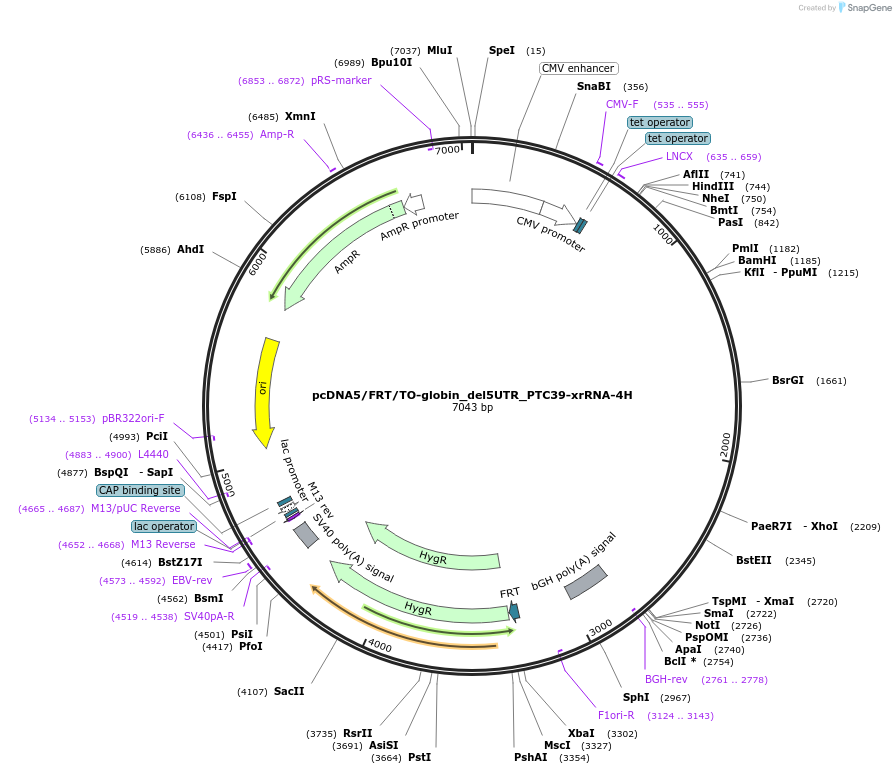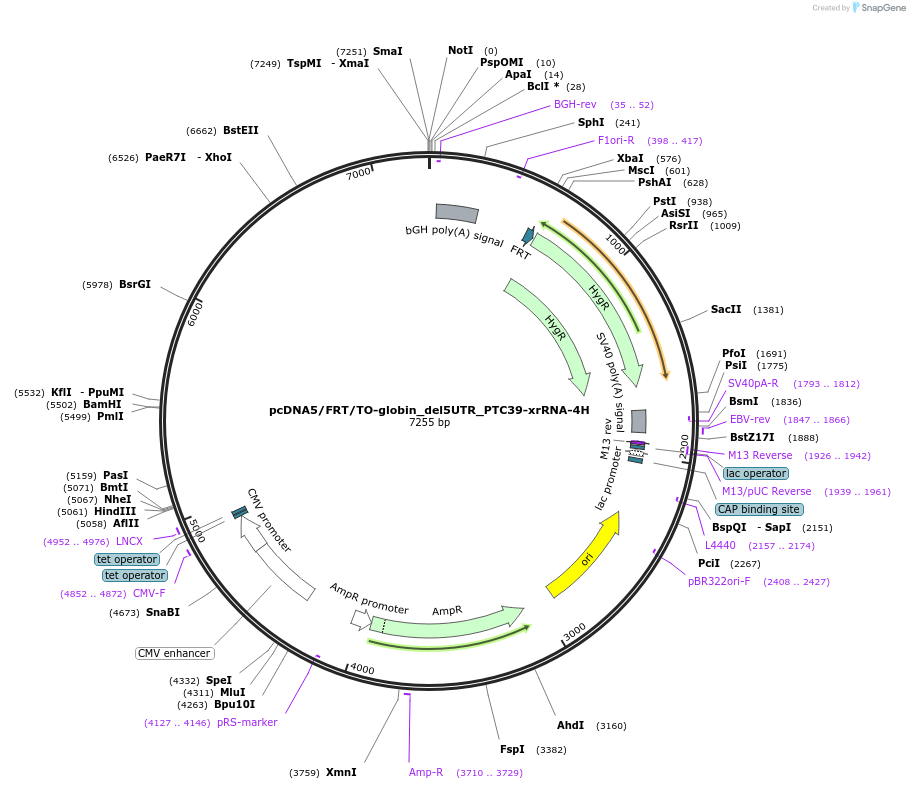pcDNA5/FRT/TO-globin_del5UTR_PTC39-xrRNA-4H
(Plasmid
#108376)
-
PurposeFRT integration of beta-globin reporter with premature termination codon (PTC39); enables detection of 5'-3' decay intermediates (xrFrag) and allows detection via northern blot (4H binding sites)
-
Depositing Lab
-
Sequence Information
Ordering
| Item | Catalog # | Description | Quantity | Price (USD) | |
|---|---|---|---|---|---|
| Plasmid | 108376 | Standard format: Plasmid sent in bacteria as agar stab | 1 | $89 | |
Backbone
-
Vector backbonepcDNA5/FRT/TO
-
Backbone manufacturerThermo Fisher Scientific
-
Vector typeMammalian Expression
-
Selectable markersHygromycin
Growth in Bacteria
-
Bacterial Resistance(s)Ampicillin, 100 μg/mL
-
Growth Temperature37°C
-
Growth Strain(s)DH5alpha
-
Copy numberHigh Copy
Gene/Insert
-
Gene/Insert namePTC39 beta-globin reporter with MVE xrRNA and 4H probe binding sites
-
SpeciesH. sapiens (human)
- Promoter CMV
Cloning Information
- Cloning method Restriction Enzyme
- 5′ cloning site NheI (unknown if destroyed)
- 3′ cloning site NotI (unknown if destroyed)
- 5′ sequencing primer CGCAAATGGGCGGTAGGCGTG
- 3′ sequencing primer TAGAAGGCACAGTCGAGG
- (Common Sequencing Primers)
Resource Information
-
Supplemental Documents
-
Articles Citing this Plasmid
Terms and Licenses
-
Academic/Nonprofit Terms
-
Industry Terms
- Not Available to Industry
Trademarks:
- Zeocin® is an InvivoGen trademark.
Depositor Comments
Please see depositor's genbank file in Supplemental Documents for full annotation of the plasmid
These plasmids were created by your colleagues. Please acknowledge the Principal Investigator, cite the article in which the plasmids were described, and include Addgene in the Materials and Methods of your future publications.
-
For your Materials & Methods section:
pcDNA5/FRT/TO-globin_del5UTR_PTC39-xrRNA-4H was a gift from Niels Gehring (Addgene plasmid # 108376 ; http://n2t.net/addgene:108376 ; RRID:Addgene_108376) -
For your References section:
Interrogating the degradation pathways of unstable mRNAs with XRN1-resistant sequences. Boehm V, Gerbracht JV, Marx MC, Gehring NH. Nat Commun. 2016 Dec 5;7:13691. doi: 10.1038/ncomms13691. 10.1038/ncomms13691 PubMed 27917860








